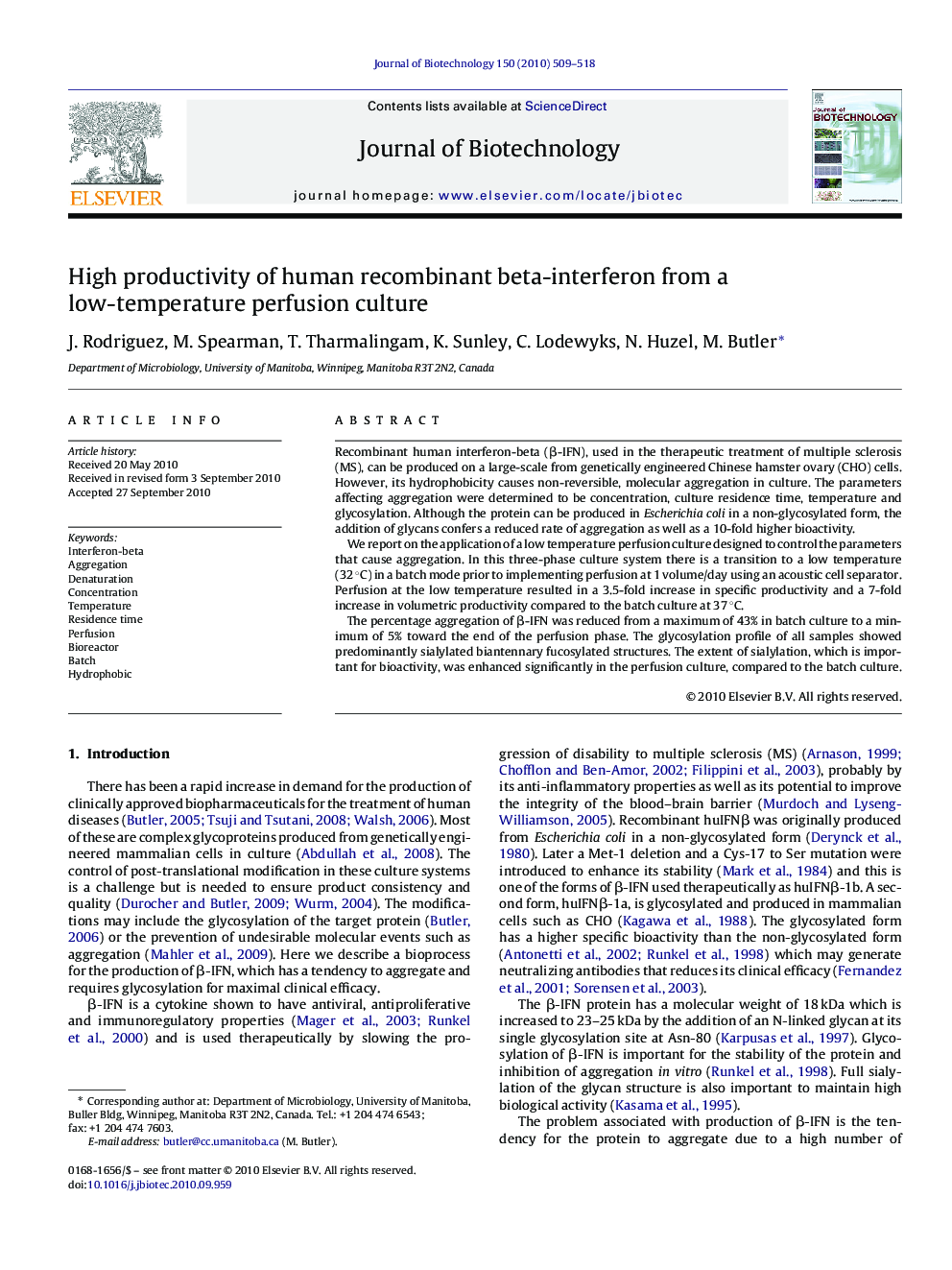| Article ID | Journal | Published Year | Pages | File Type |
|---|---|---|---|---|
| 24137 | Journal of Biotechnology | 2010 | 10 Pages |
Recombinant human interferon-beta (β-IFN), used in the therapeutic treatment of multiple sclerosis (MS), can be produced on a large-scale from genetically engineered Chinese hamster ovary (CHO) cells. However, its hydrophobicity causes non-reversible, molecular aggregation in culture. The parameters affecting aggregation were determined to be concentration, culture residence time, temperature and glycosylation. Although the protein can be produced in Escherichia coli in a non-glycosylated form, the addition of glycans confers a reduced rate of aggregation as well as a 10-fold higher bioactivity.We report on the application of a low temperature perfusion culture designed to control the parameters that cause aggregation. In this three-phase culture system there is a transition to a low temperature (32 °C) in a batch mode prior to implementing perfusion at 1 volume/day using an acoustic cell separator. Perfusion at the low temperature resulted in a 3.5-fold increase in specific productivity and a 7-fold increase in volumetric productivity compared to the batch culture at 37 °C.The percentage aggregation of β-IFN was reduced from a maximum of 43% in batch culture to a minimum of 5% toward the end of the perfusion phase. The glycosylation profile of all samples showed predominantly sialylated biantennary fucosylated structures. The extent of sialylation, which is important for bioactivity, was enhanced significantly in the perfusion culture, compared to the batch culture.
